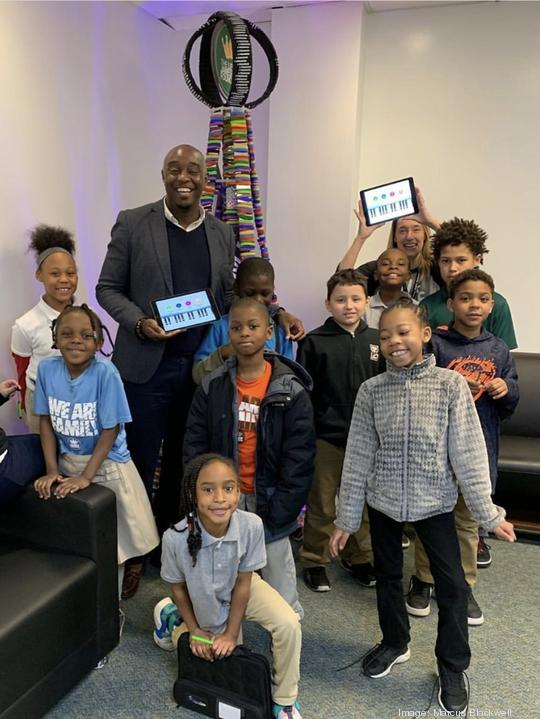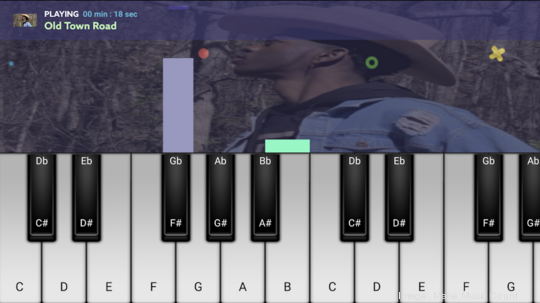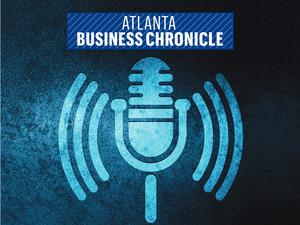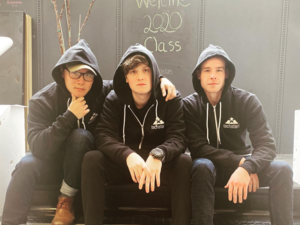
Marcus Blackwell Jr. always struggled with math in school.
Instead of algebra equations, he preferred practicing gospel and classical jazz music on the piano. But during his sophomore year at Morehouse College, he realized just how intertwined the two subjects are.
“You cannot do music without understanding math, whether you’re talking about rhythm, reading sheet music, time signatures — all math,” Blackwell said.
Blackwell overcame his intimidation of numbers when he saw its similarity with music, so much so that he pivoted to a math degree.
Once equipped with the numerical expertise to match his musical acumen, Blackwell founded Make Music Count, an education tech startup app that uses a virtual keyboard and popular songs to teach students math equations.
'Educational reform'
The app has equations that coincide with curriculum for K-12th grades. Students solve an equation at the top of the screen to find out which note they need to play next to complete the song. Blackwell included all types of genres, including the latest pop and hip-hop songs, so students would be excited to learn the notes.
“We believe that part of the reason why students aren’t performing is because they don’t see themselves in lessons,” Blackwell said. “So our approach of using songs that are familiar to them — that they hear on the radio and listen to at home — is a way to increase retention and engagement in learning.”
Blackwell recently received $50,000 from Google for Startups Black Founders Fund, which he said he’ll use for marketing and advertisements for the app. He just completed Cox Enterprise's Social Impact Accelerator Powered By Techstars program this year to better his business model.
Blackwell has a national partnership with the Boys and Girls Club as well as local school district partnerships. The app can be used in either music or math classrooms, he said, but one of his biggest challenges has been integrating the technology into school curriculums.
“We’re talking about educational reform,” Blackwell said. “People that create curriculum don’t look like me in most cases, so it’s been tough sometimes to get people to give us a chance.”

A bootstrapped beginning
Blackwell first tested the model for his app in 2013, taking a keyboard and fraction problems into an after-school program in Atlanta Public Schools. The students solved the equations while Blackwell played the notes of 2 Chainz’s “I’m Different.” He played the full song for them when they finished the set of problems, and he said the students immediately wanted to do another song — even if it meant dealing with more fractions.
Blackwell continued to bring his keyboard into after-school and summer programs in other Atlanta-area school districts, growing that model to span 60 schools in eight states. He said spending time within the school districts helped him refine the curriculum and launched the app in 2018 based on student feedback.
“I was able to start out with kids who looked like me,” Blackwell said. “I wanted to test this out with kids that had a similar background and upbringing like me and similar struggles.”
Blackwell bootstrapped his startup and created the app with $72,000 won in a WeWork pitch competition. Make Music Count’s transition into the app store became a lifesaver when the COVID-19 pandemic hit, yanking students out of in-person classes and putting them in a completely virtual learning environment.
Virtual learning
The Summer Engineering Experience for Kids program, hosted by the National Society for Black Engineers, used Blackwell’s app as a learning tool for their participants for the first time this year because of their virtual set up.
“It really stood out because it was shaped around something he knew kids were excited about,” said Dania Roach, the pre-college initiative coordinator for SEEK. “A lot of similar organizations may try to do this, but they don’t get it quite right.”
During the summer program, Blackwell led a virtual workshop demonstrating the app to the students, many of whom turned their cameras on to dance with each other after they successfully completed the math problems, Roach said.
“It was an optional math workshop, and he got 300 kids to participate,” Roach said. “They didn’t even mind the math portion.”
That’s the type of experience Blackwell hopes to instill in all students. Blackwell said he makes sure the math equations look exactly how they would on a test or in a textbook because that familiarizes students with the equations and makes them less intimidating.
"We make sure all the pieces that give students anxiety during the school day or during a math class remained in the app," Blackwell said. "That's why we're so unique. We don't use music as a mask, but as an end reward."







